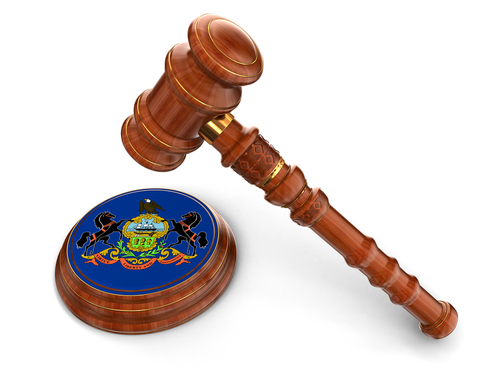Lawyer who argued cocaine can be beneficial now says he should have retained counsel in ethics case

A now-former assistant public defender who was accused of using cocaine before his client’s hearing is in drug rehab and seeking disciplinary probation, rather than a suspension of his law license. Image from Shutterstock.
Updated: A now-former assistant public defender who was accused of using cocaine before his client’s hearing is in drug rehab and seeking disciplinary probation, rather than a suspension of his law license.
Erie, Pennsylvania, lawyer Nathaniel Edmond Strasser had initially suggested in a disciplinary hearing that cocaine can have a positive effect on cognitive abilities in low doses. But now, Strasser is represented by counsel and acknowledging that his self-representation in the ethics case “was inappropriate and deficient,” according to a brief filed by his current lawyer, Philip Friedman.
The Erie Times-News covered the brief, filed last week with the disciplinary board of the Pennsylvania Supreme Court.
“Despite his testimony, he is in fact an addict,” Friedman wrote in the brief. “Like many other professionals, he has a difficult time acknowledging that fact.”
Strasser submits to regular urine tests as part of his outpatient rehabilitation program. He should be placed on “substance abuse probation” subject to conditions set by the disciplinary board, the brief said. He previously received in-patient treatment in 2018 and 2019 but did not submit that evidence to the board, the brief said.
The Pennsylvania Office of Disciplinary Counsel had recommended a suspension of a year and a day in a November 2023 brief.
Strasser was admitted to law practice in 2007. He has no prior ethics violations.
A phone number listed for Strasser on the disciplinary board website is no longer in service. Friedman told the ABA Journal in an email that he doesn’t know when the hearing committee will issue its recommendation.
“I requested that the hearing committee give me an opportunity to present evidence of his substance abuse history and treatment, but they declined,” Friedman said. “The absence of this evidence in the record complicates the case enormously.”
Lawyers and law students needing help for mental health issues or substance abuse disorders can contact their state lawyer assistance program. The ABA has published contact information here.
Updated Jan. 11 at 7:40 p.m. to add lawyer Philip Friedman’s comments. Updated Jan. 18 at 8:15 a.m. to add link to lawyer assistance programs.



